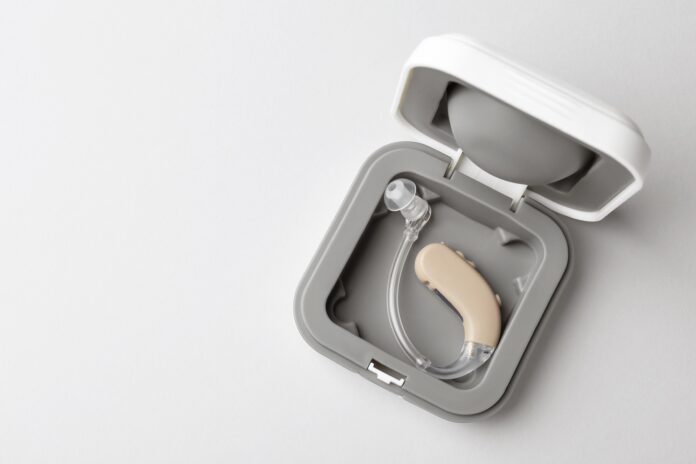OTC hearing aids are officially available. As of October 17th, patients no longer need to visit a doctor, an audiologist, or a licensed hearing aid specialist to receive their hearing aids. This is a massive leap for millions with hearing loss and their families who need devices. The decision is intended to increase access and lower costs.
OTC hearing aids are meant for adults with self-perceived mild-to-moderate hearing loss. Children are still recommended to see an audiologist or hearing specialist for a hearing evaluation. So, unfortunately, they’re not recommended for everyone. But if you’re experiencing trouble hearing, you might wonder if they’re right for you. Some tools are available to help you figure that out.
FDA Warning Labels for OTC Hearing Aids
The FDA requires OTC hearing aids to label common signs of mild-to-moderate hearing loss. Signs include:
- hearing speeches in noisy places or groups
- hard time hearing while talking on the phone
- constantly turning up the volume to hear the content, and others find it too loud
- listening makes you tired
The agency also provides signs suggesting that your hearing loss may be too severe for the OTC devices. Signs include:
- unable to hear speech in a quiet room
- not able to hear loud sounds – engines, power tools, etc.
If you’re experiencing those symptoms, visit your doctor or an audiologist. Most hearing loss is irreversible. However, there are times when changes in someone in hearing are caused by medical issues such as infections, earwax buildup, or specific injuries. If that is the case, you’ll need to visit your doctor to resolve the issue before jumping to a hearing aid.
Furthermore, the FDA requires OTC hearing aids to be labeled with “red flags” that indicate when you should see your doctor. Those red flags include the following:
- blood
- pus
- fluid coming out of one or both of your ears
- ear pain/discomfort
- dizziness or vertigo
- sudden changes in your hearing
Hearing Assessments – In-Person or Remote
You can opt for an in-person hearing assessment if you believe you’re a good candidate. Most people choose to receive a hearing assessment from a licensed professional. Unfortunately, many providers are charging different prices for the assessments alone. And sometimes, they’re the cost of your hearing aids. Therefore, always check to see if your insurance covers the test(s).
- There are multiple tests to test your hearing. They include:
- tone-based testing apps
- digits-in-noise/speech-in-noise
- evidence-based self-assessment






